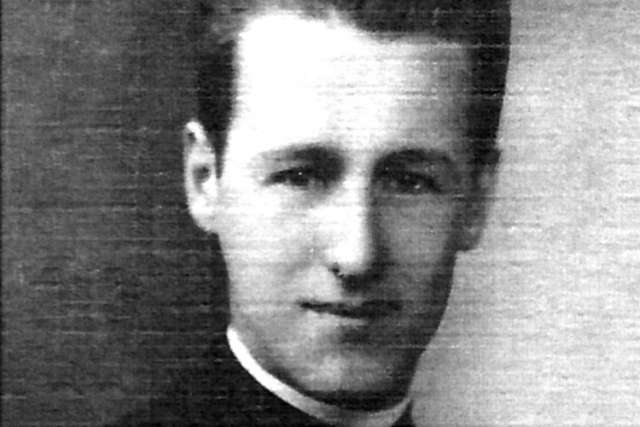When he died in 2011, Fr. Platt bequeathed the family home in which he spent his retirement years to the Archdiocese of Toronto with instructions that the proceeds from its sale be used to help build a retirement residence for priests.
“I think it was a wonderful gesture,” said his brother, Fr. Wallace Platt, the estate trustee.
His whole life was dedicated to the priesthood, said Platt, who notes that his brother wanted to serve the Church since he was a boy.
“He was very charitable for others,” he said. “This was very much keeping with his character.”
To fulfill his brother’s wish, Platt and other family members brought a cheque to the Archdiocese of Toronto and gave it to Cardinal Thomas Collins. Discussions are now underway to bring this vision to life.
“Locations are being researched and plans are being discussed with an architect . . . Cardinal Collins has given his full-hearted support and established a committee to examine what is possible,” said Fr. Brian Clough.
Clough, who first met Fr. Platt in the early 1970s, said the late priest often reached out to fellow priests.
“After his retirement to the family home in Corpus Christi parish (in east-end Toronto), Father Ed opened his home to seminarians and priests — providing accommodation, room and board as well as a spiritual and fraternal setting for a number of men who found themselves in Toronto without other family or friends,” Clough said via e-mail.
Fr. Platt was also a frequent visitor to retired priests in the residence adjacent to Providence Healthcare (formerly Providence Villa). When a priest died, Fr. Platt would give retired priests a ride to the funeral, help them get vested for Mass and then return them home after the reception.
“He participated as often as possible in every priest’s funeral, and helped his retired brothers to take part in the funeral rites,” Clough said.
Unlike priests who are members of a religious community, diocesan priests often live alone in rectories and, at retirement, usually choose to live in an apartment, with other family members or in a seniors’ residence. So although there were discussions in the past about building a home so priests could live in community at retirement, plans never got off the ground.
Clough said each time the idea was broached, the feedback was positive but when asked “If we build it will you come?” the answer from priests was negative.
“Each thought it was a good idea for other guys,” Clough said.
But with people living longer, the thought of living alone and having to furnish and maintain an apartment has become less appealing. So when priests were presented recently with a concept for a retirement home comprising 15 to 18 private apartments, with shared common areas, housekeeping, one daily meal, a chapel and on a site close to public transportation and with parking, Clough said he got a different answer to his question.
“This time those who spoke to it answered the question in the affirmative: If it is built I would come.”
Their retirement home is coming soon, thanks to the vision and generosity of Fr. Platt.
(Santilli is a freelance writer in Toronto.)


